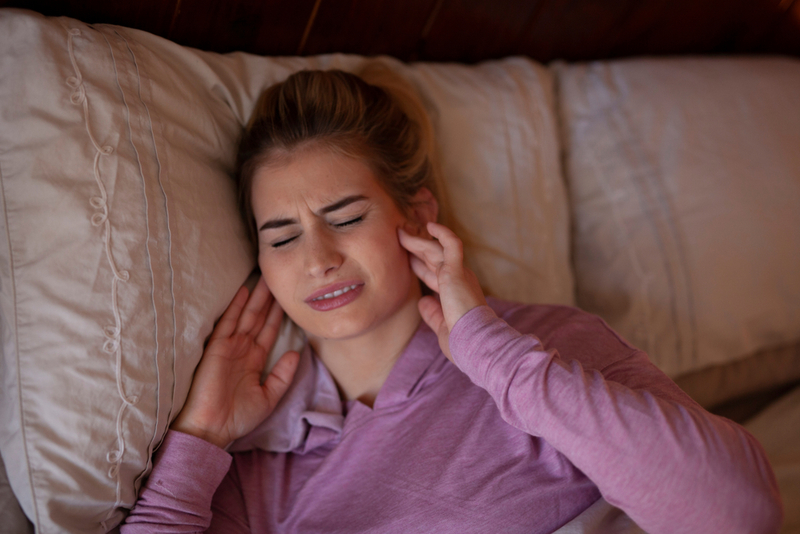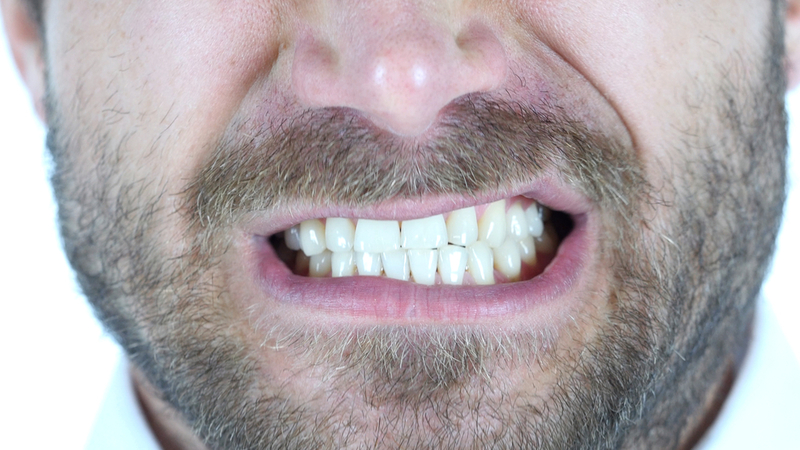
The medical term for teeth grinding is bruxism’ and it’s often involuntary. This can be caused by numerous reasons, but the most common ones are usually more mental than physical and linked to stress or anxiety. According to psychologist Andrea Bonior, Ph.D., there are many ways in which mental anxiety manifests physically, like headaches, insomnia, stomach aches, and yes, teeth-grinding.
What Can We Do?
Now, what do we do with all that anxiety and how do we keep it from hurting our teeth and jaw? Bonior has a few techniques you can try. One is to perform a mental scan — close your eyes, breathe deeply and evenly, and try to individualize your feeling and name them instead of letting them form an intimidating ball of assorted negativity. This is a good exercise for anyone who might be struggling with anxiety, regardless of how it manifests itself physically.

Another thing you should do is see a doctor. A dentist that specializes in temporomandibular joints syndrome (or simply TMJ) would be best. These joins are what enables movement in your jaw. Without them, we wouldn’t be able to chew or speak. When we grind our teeth, these joints work extra-hard and can start to hurt or suffer damage. Also, grinding our teeth can result in dangly teeth or exposed nerve endings. Exposed nerve endings in your teeth are what make you flinch in pain whenever you eat or drink anything cold. And that hurts. A dentist can fit you with a silicone bite-guard you can wear to bed until you manage to sort through your mental issues.